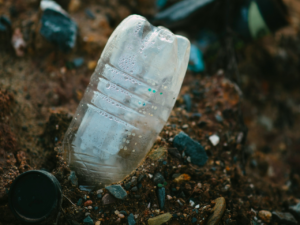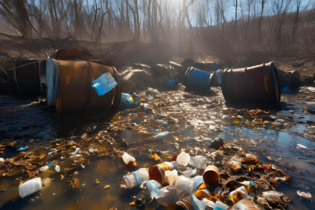While South Africa supports the development of an internationally legally binding instrument to combat plastic pollution, government has assured the plastic industry that the problem of plastic pollution and the measures necessary to tackle it will be taken in consultation with the industry and organised labour.
This as South Africa has a significant plastics industry that sustains approximately 60 000 formal jobs.“A just transition contributes to the goals of decent work for all, social inclusion and the eradication of poverty. A just transition puts people at the centre of decision making, especially those most impacted – the poor, women, people with disabilities and the youth – empowering and equipping them for new opportunities of the future.“So, as we move forward, it will be necessary to establish certain principles to guide our negotiations on this matter. All our decisions must be based on the best available science and what this science tells us about the impact of certain products on our environment,” Deputy Minister of Forestry, Fisheries and the Environment, Bernice Swarts, said on Wednesday. The Deputy Minister was addressing a virtual consultative stakeholder meeting on South Africa’s negotiating position ahead of the 5th Session of the Intergovernmental Negotiating Committee (INC-5) on the International Legally Binding Instrument on Plastic Pollution, including in the Marine Environment. INC-5 is scheduled to take place in Busan, Republic of Korea, from 24 November – 1 December 2024. Swarts explained South Africa’s position to support the development of an internationally legally binding instrument to combat plastic pollution at the Fifth Session of the United Nations Environment Assembly in the first quarter of 2022.
“At that time, we recognised the threat plastic pollution poses to human health, ecosystem functioning, and the marine environment. In signing up for this process, we recognised our constitutionally imposed obligation to protect our environment and human health.“Consequently, on the domestic front, we understand that this requires a wholistic approach that understands the full life cycle of plastic manufacturing, use, and disposal in the context of the National Waste Management Strategy, 2020,” Swarts said. Accordingly, South Africa has focused on three aspects that include supporting and strengthening municipal waste management services to prevent plastic leaking into the environment. Developing Extended Producer Responsibility (EPR) schemes to collect, reuse and recycle plastic waste with the aim of promoting a circular economy in the plastic industry as well as promoting public awareness and clean up campaigns to remove plastic waste from rivers, wetlands, and beaches. As part of the principles to guide the negotiations on this matter, the Deputy Minister emphasised the need to be open and transparent in sharing information about the chemicals used in plastic production, given the various applications of plastics in food contact applications. “This new international legally binding instrument will likely result in the need for new regulatory controls on a domestic level. Should the international instrument lead to obligatory measures to curb plastic pollution, there will be a need for these measures to be supported by equally ambitious means of implementation. “So, developing countries will argue for a financial mechanism that would ensure predictable and adequate financial resources to assist in curbing plastic pollution in developing countries. INC-5 provides a key platform for broader conversations on the variety of options linked to several obligatory measures that have been proposed,” Swarts said. Originally posted on SAnews.gov.za







